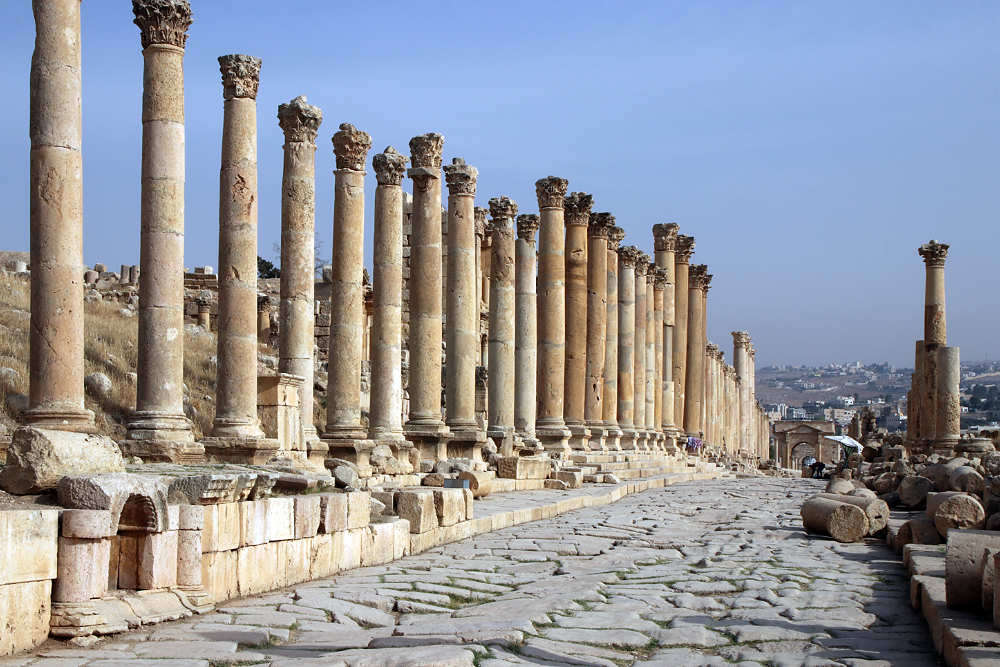

The city of Jerash, located in Jordan, is home to one of the best-preserved Roman provincial towns in the world. The ancient city is famously known for the Cardo Maximus, which is the Latin term for the main or central north-south-oriented street in Roman cities, military camps, and colonies.
Founded by Alexander the Great or his general Perdiccas around 331 BC, Jerash became one of the Decapolis cities under Roman rule. The Cardo Maximus represents the grandeur of Roman urban planning, lined with columns, which in its heyday, connected the city’s main attractions such as temples, theatres, and public squares.
Tourism in Jerash began to rise significantly during the 19th and early 20th centuries when the Western world rediscovered the site. Scholars, historians, and travelers were drawn by the well-preserved ruins, which culminated in archaeological excavations and restorations. Over the years, as knowledge about Jerash's significance spread, the city became an essential stop for visitors to Jordan.
Today, visitors marvel at the sights of the ancient city and can walk through the colonnaded streets, envisioning the bustling life that once filled the Cardo Maximus. Modern tourism at Cardo Maximus, Jerash, is an amalgamation of rich historical experience with the convenience of contemporary amenities.
The recent trend focusing on sustainable and experiential travel has seen an increase in the number of tourists seeking authentic experiences in historical destinations. Visitors to Cardo Maximus can now enjoy guided tours that offer historical insights, alongside cultural experiences such as the reenactments of Roman chariot races and gladiatorial battles in the nearby Hippodrome. The Jordanian government and local businesses have also worked to enhance the tourist experience through improved facilities and services.
One of the hallmarks of Jerash's tourism growth is the annual Jerash Festival of Culture and Arts. This event transforms the ruins into a lively cultural hub that showcases a blend of local, regional, and international music, dance, and arts, drawing visitors from all over the globe.
With an understanding of the delicate balance between preserving the ancient site and accommodating tourists, efforts are being made to ensure sustainable tourism practices are in place. This includes limiting visitor numbers in certain areas, promoting off-season tourism, and educating tourists on the importance of preserving such historic sites.
In conclusion, Cardo Maximus in Jerash stands as a testament to the historical richness of Jordan and continues to be a focal point for tourists seeking to explore the legacies of the Roman Empire. The blend of historical allure and contemporary cultural experiences keeps it at the forefront of Jordanian tourism, offering visitors a chance to step back in time and walk along the paths of history.